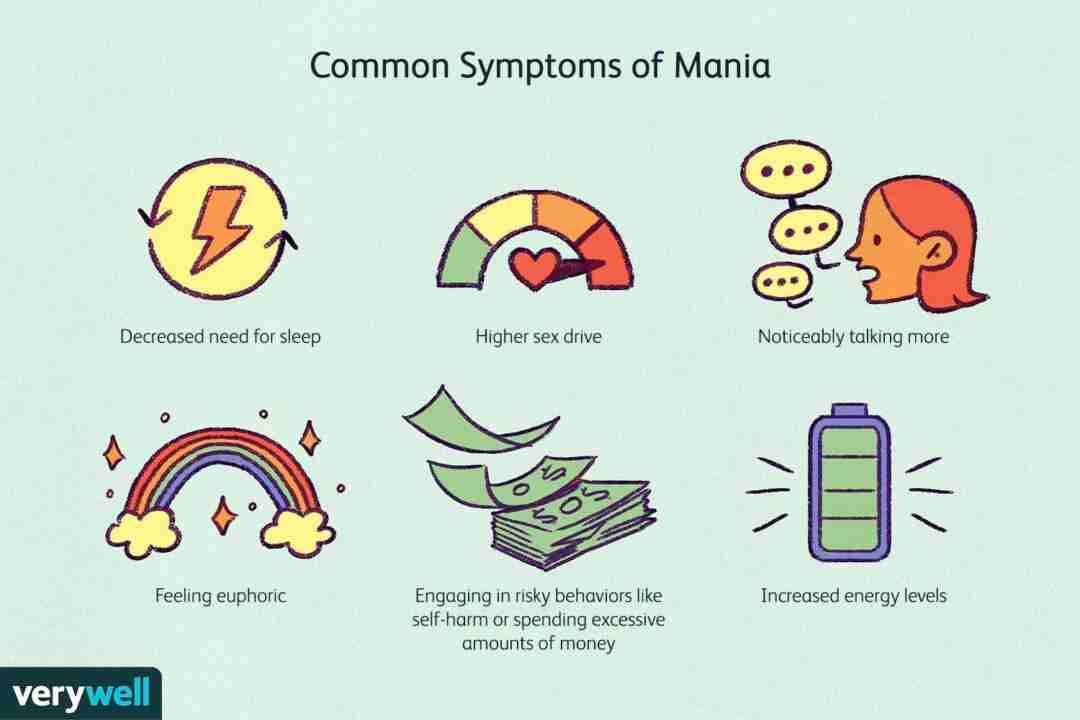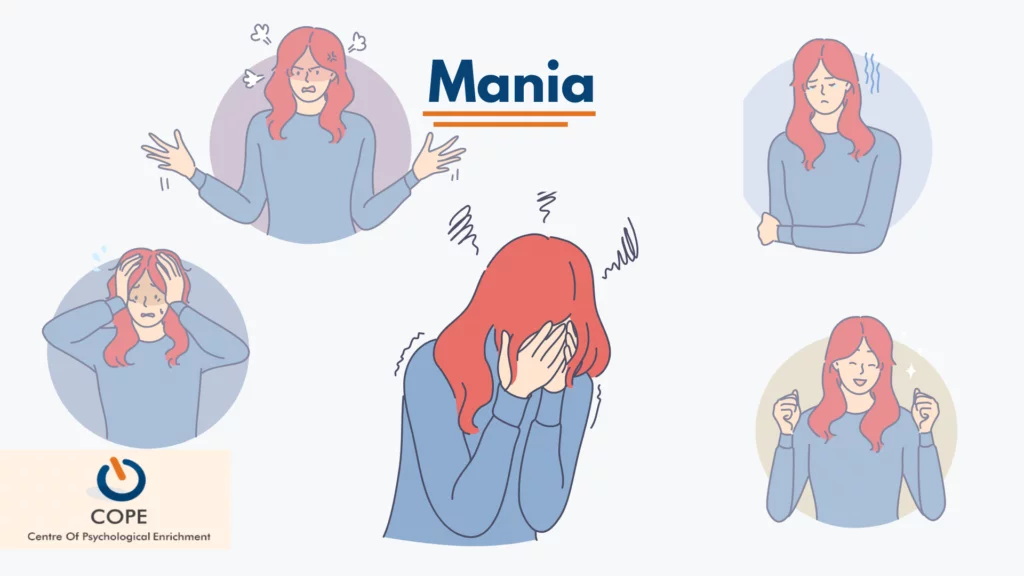What is a manic episode?
- Postpartum psychosis
- Seasonal affective disorder
- Schizoaffective disorder
What can the symptoms of a manic episode look like?


Having an exceptionally high level of energy.
During a manic episode, a person may search for ways to work off extra energy. They often take on many projects or tasks at once. This is usually described as “multitasking on steroids.”
Feeling extremely happy or excited.
A euphoric or elevated mood is one of the most common mania symptoms. Though at times, individuals experiencing mania show extreme levels of irritability.
Not getting enough sleep.
People with mania may have trouble sleeping or feel that they have less need for sleep. It is common for someone with mania to stay awake for more than 24 hours. Some only sleep 3 hours a night, yet report feeling as though they have slept well.
Having inflated self-esteem.
People with mania can have an excessive level of self-importance or a sense of superiority. A person may think that they are capable of supernatural abilities or impossible things. To name just one thing ending all poverty with their idea.
Being overly talkative.
During a manic episode, it is common for people to become extremely more talkative than usual. They will talk so much and so fast that others can have difficulty interrupting them.
Having racing thoughts.
During a manic episode, people can have lots of thoughts on several topics at the same time. This is called a “flight of ideas”. Consequently, the person may rapidly change the topic of their conversation.
Being easily distracted.
During a manic episode, people can be easily distracted by unimportant or unrelated things. This symptom is closely related to having racing thoughts.
Displaying purposeless movements.
During a manic episode, people may partake in extreme levels of pacing around their house or office. Also, an extreme amount of fidgeting is common.
Engaging in risky behaviour.
During their manic episode, many people present patterns of impulsive behaviours. These can lead to poor choices. Examples of these are buying sprees, reckless sex, foolish business investments, speeding, reckless driving or trying drugs.
What are some of the causes of Mania?
- Family history or Genetics. If a person has relatives with manic episodes, the chances of the individual also developing mania increase. Even so, this is not always the case.
- Chemical imbalance in the brain.
- A significant change in a person’s life. This can be events such as divorce, significant financial strain, or the death of a loved one.
- A side effect of a medication, alcohol, or recreational drugs.
- Elevated levels of stress and an inability to manage it.
- Lack of sleep or drastic changes in sleep pattern.
- Symptoms of mental health problems. Such as seasonal affective disorder, postpartum psychosis, and schizoaffective disorder. Further other physical or neurologic conditions such as brain injury, brain tumours, stroke, dementia, lupus or encephalitis.
Treatments for Manic episodes
- Medicine. People may be prescribed a medication to treat their mania. Likewise some may get a mood stabiliser to help prevent drastic mood changes.
- Therapy. People can have a lot of emotional and mental distress due to their manic episodes and may need to see a psychologist. In therapy, they will learn skills and techniques to help them cope. You can get in contact with us here to get in touch with a psychologist.
- Electroconvulsive therapy: Very rarely, mania may be treated with electroconvulsive therapy (ECT). This option is considered when people’s mania becomes life-threatening. Sometimes ECT is used for people who have bipolar disorder which does not respond to other treatments. ECT passes controlled currents of electricity through the brain to cause a brief seizure. In this way, certain chemicals and neurons within the brain are affected.
- Social support. While not a treatment, for those who struggle with their everyday tasks due to mania, support workers can be greatly beneficial. If you would like to discuss support workers, you can get in contact with COPE through email at [email protected] or call us on (08) 6556 6460.
